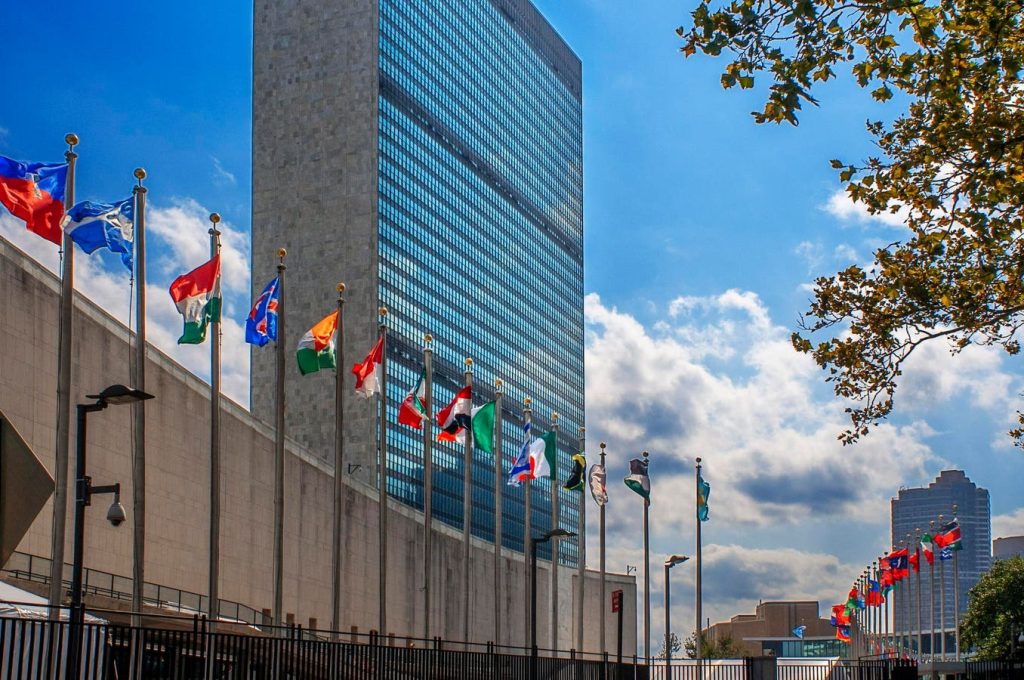For the past 15 years, the Conference of States Parties (COSP) has served as an international beacon of commitment and cooperation for the rights of Disabled people. Meeting annually at the United Nations Headquarters in New York since its inception in 2008, it brings together states, representatives, and advocates from around the world. This year, the 16th session of the Conference of States Parties to the UN Convention on the Rights of Persons with Disabilities (COSP16) brought critical discussions, insights, and resolutions aimed at enhancing the lives and rights of Disabled people globally.
As the digital landscape continues to evolve, so does the need for inclusive and accessible environments, says Debra Ruh, disability rights advocate and founder of Ruh Global IMPACT. Ruh brought her invaluable expertise to the 16th session of the Conference of State Parties (COSP) to the UN Convention on the Rights of Persons with Disabilities (CRPD).
Ruh is no stranger to advocacy and activism. “My efforts aim to foster inclusion, champion accessibility, and uphold the rights of persons with disabilities. The primary goal of our engagement at COSP16 was to translate awareness into tangible and impactful action,” she explains.
In collaboration with the International Telecommunication Union (ITU), Billion Strong, Zero Project, G3Ict, and the EU Commission on Accessibility, Ruh co-hosted a vital event at COSP16, titled “Mastering ICT/digital accessibility: Paving the way for a digitally inclusive world for ALL.”
Ruh reflects on the conference with an air of optimism, stating, “The hopeful atmosphere at this year’s #COSP16 was palpable. The rise in sessions centered around raising awareness about disabilities demonstrates a growing interest and involvement in these critical issues. This kind of engagement is instrumental in constructing a more inclusive and accessible society.”
Even as she underscores the progress made, Ruh remains realistic about the challenges ahead. “Despite the slow pace of change, the intense conversations during the conference are indicative of a maturing understanding of the complexities surrounding disabilities and the pressing need for proactive measures,” she notes.
In discussing national policies that align with the CRPD principles, Ruh singles out the European Accessibility Act (EAA). She lauds, “With the EAA, the EU has raised the bar for all nations. It’s truly exhilarating to see such strides being made; directives like these represent the way forward.”
Addressing digital accessibility was a key focus of COSP16, an aspect that Ruh believes was well-handled. “Despite some glitches and areas of improvement, #COSP16 took thoughtful strides towards addressing digital accessibility. This includes efforts to ensure compatibility with assistive technologies, provision of content in alternative formats, and adoption of inclusive design principles,” she articulates.
Ruh concludes with a critical reminder – digital accessibility is a dynamic and evolving pursuit. “As technology surges forward, so must our conversations and efforts around digital accessibility. It’s a continuous process of adaptation, innovation, and improvement,” she emphasizes.
As the 16th Conference of State Parties to the UN CRPD concluded, the resounding echoes of collaboration, resilience, and hope for a more inclusive future for the Disabled community rang clear. Groundbreaking conversations were instigated, powerful alliances were formed, and tangible commitments were made. Individuals and the organizations who co-hosted crucial events have illuminated the path forward, making strides towards true digital inclusion and accessibility. However, the journey does not end here. As technology advances, the conversations and actions on digital accessibility and inclusivity must also evolve. Through continual advocacy, action, and adaptation, we inch closer to an all-encompassing and inclusive society. With the learnings from COSP16, we are undoubtedly on the right path. The beacon of commitment ignited by the Conference of States Parties continues to burn bright, guiding the way for transformative changes and unwavering progress in upholding the rights of Disabled people.
Read the full article here










